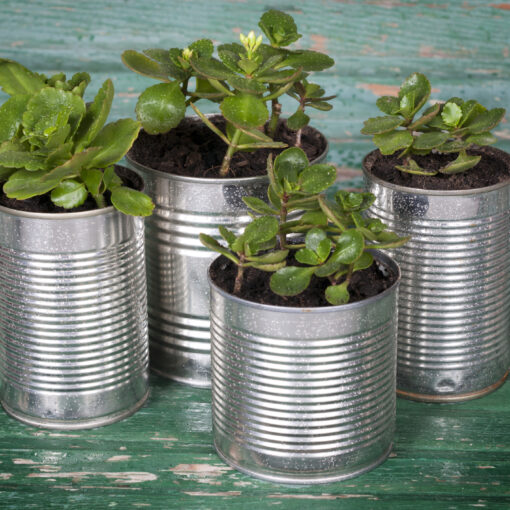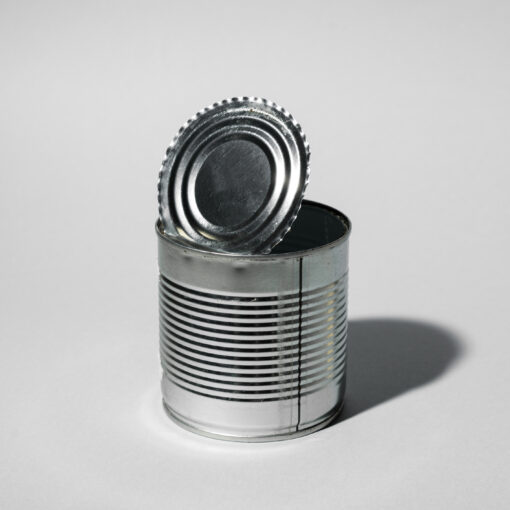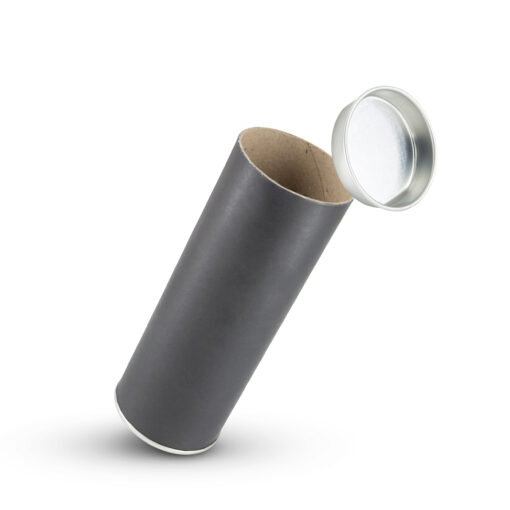
Tin can ends revolutionized food preservation.
They are not just versatile but also incredibly durable, ensuring that contents stay fresh for extended periods. These ends offer numerous benefits in the food packaging industry, ranging from improved shelf life to ease of transport. Furthermore, they play a vital role in maintaining the integrity and safety of the products they contain.
1. Preservation and Freshness
Tin can ends play a crucial role in maintaining the quality of packaged goods.
By ensuring an airtight seal, tin can ends create a controlled environment, inhibiting the entry of oxygen, moisture, and other external contaminants, which can compromise the freshness and safety of food products. This containment is vital in prolonging shelf-life and guaranteeing that items retain their original taste and nutritional value.
Moreover, they provide a resilient barrier against environmental factors such as light and temperature fluctuations, making cans ideal for long-term storage. In particular, acidic or perishable goods benefit immensely from the protective qualities of tin can ends, ensuring that consumers receive the highest quality possible.
The technological advancements in tin can end manufacturing have revolutionized product preservation. With innovations like easy-open ends and peel-off lids, modern tin can ends not only extend the longevity of products but also offer unparalleled convenience. This harmonious blend of functionality and preservation positions tin can ends as indispensable assets in the packaging industry.
2. Cost-Effectiveness
Tin can ends are exceptionally cost-effective.
Their affordability stems from the long-term savings they provide. The initial expenditure on tin can ends is often offset by the extensive preservation properties they offer, which means products have a longer shelf-life and require fewer preservatives. Consequently, this reduction in food wastage leads to significant cost savings over time.
Bulk production of tin can ends keeps unit prices low.
Companies can benefit from economies of scale – as the production capacity of tin can ends increases, the per-unit cost decreases significantly. Furthermore, their durability minimizes the need for additional packaging materials, reinforcing their cost-effectiveness.
This inherent cost-effectiveness of tin can ends supports a myriad of industries, ensuring they can deliver high-quality products without incurring exorbitant expenses. Their reliability and affordability make them an indispensable component in today’s competitive market.
3. Environmental Impact
Tin can ends play a significant role in reducing waste, offering a sustainable solution for packaging needs. With their recyclable nature, they minimize the environmental footprint associated with disposable packaging.
Consumers increasingly prioritize sustainability, and the widespread recyclability of tin can ends aligns perfectly with this shifting demand.
Moreover, the durable nature of tin can ends ensures the preservation of products, reducing the need for repeated production cycles.
This longevity leads to a decrease in resource consumption and energy expenditure, contributing positively to environmental conservation.
Additionally, as tin can ends are made from materials that can be recycled indefinitely, they help in curbing the depletion of natural resources. When businesses choose tin can ends, they support an eco-friendly packaging option that meets contemporary environmental standards.
Ultimately, the adoption of tin can ends not only aids in preserving the planet but also enhances the public image of companies. They become part of a global movement towards responsible resource usage and environmental stewardship.
4. Versatility in Use
Tin can ends offer unparalleled flexibility across multiple industries. Their application spans far beyond mere packaging for food and beverages.
Companies globally have recognized the myriad advantages tin can ends present. They provide an integrated solution that ensures product integrity, safety, and long-term preservation.
Furthermore, one cannot overlook their adaptability, which extends to pharmaceuticals, cosmetics, and even home goods. This versatility makes tin can ends an invaluable asset for myriad businesses looking to diversify their product offerings.
Their usage not only simplifies packaging processes but also supports sustained quality. Tested and proven to withstand various environmental conditions, tin can ends are an optimal choice for cutting-edge, durable packaging.
Such versatility ensures any company investing in tin can ends remains at the forefront of innovation. Tin can ends thus become indispensable in modern packaging solutions.
5. Durability and Strength
Tin can ends exemplify exceptional durability and strength, attributes essential for preserving the quality of the enclosed products.
Stringent industrial testing and innovative manufacturing processes have ensured that tin can ends withstand a wide range of external stresses without compromising their structural integrity.
In fact, they are specifically engineered to resist dents and corrosion, making them ideal for maintaining product safety throughout transportation and storage phases, thus upholding the product’s value.
Additionally, the robust nature of tin can ends supports an extended shelf-life by sealing out environmental factors such as moisture, oxygen, and contaminants, which are known to degrade contents over time.
Their formidable resilience extends beyond mere packaging solutions; tin can ends reinforce the security and longevity of the products they encase, elevating them beyond ordinary containers.
6. Safety Features
Safety is a paramount consideration in packaging.
Tin can ends are meticulously designed with safety in mind. Their construction integrates advanced engineering techniques to prevent sharp edges, ensuring users’ hands are protected during handling. Additionally, the material used is certified to be non-toxic, which is crucial for food and beverage storage. With these precautions, manufacturers have minimized the risks associated with tin can packaging.
Seamless edges contribute significantly.
The risk of contamination is also reduced by these safety features – as any breach in the tin can surface could lead to exposure to harmful pathogens or rust. Consequently, manufacturers utilize state-of-the-art sealing technologies to create tamper-evident closures.
Regulatory compliance is another safety aspect, reflecting rigorous adherence to international safety standards, ensuring that tin can ends meet and exceed the highest criteria. These standards safeguard consumer health while fortifying market confidence in the quality and safety of the packaging solutions.
7. Customization Options
Customization offers diverse advantages for tin can ends.
This versatility means that each brand can stand out uniquely. For instance, various sizes and shapes allow producers to create distinct packaging that heightens brand visibility. Graphics, lettering, and other visual elements can also be tailored to reflect the brand’s image. Either way, differentiated packaging aims to attract more consumers.
Branding opportunities are further enhanced.
Selective use of embossing and debossing techniques can impart a distinct tactile feel – a tool that brands leverage to invoke premium-quality perceptions. Furthermore, adopting custom-fit sealing options facilitates brand-specific user experiences.
By embracing customization options, brands ensure their packaging aligns seamlessly with their promotional strategies, resonating deeply with their target audience. This alignment catalyzes brand loyalty and visibility, cementing their position in a competitive market.
8. Recycling Benefits
Recycling tin can ends is beneficial for the environment and the economy.
Tin can ends provide significant cost savings, environmental benefits through recyclability, and extended product preservation, making them a versatile, indispensable asset across various industries while supporting sustainability initiatives.
Beyond the financial savings, the recycling of tin can ends contributes to the sustainable practices that modern industries strive to achieve. This environmental stewardship bolsters the corporate social responsibility profiles of businesses.
Embracing recycling also fosters innovation as companies seek more efficient technologies.
9. Convenient Storage
Tin can ends, renowned for their practicality, have a range of applications that make them indispensable for efficient storage solutions.
Primarily, tin can ends serve as an excellent sealing mechanism for various goods, maintaining their freshness, flavor, and nutritional value. This versatility makes tin can ends ideal for storing perishable items, from vegetables to beverages, ensuring that products remain in peak condition until they are ready for consumption.
Furthermore, they facilitate a compact and organized storage system in both commercial and domestic settings. By using tin can ends, individuals and businesses can maximize their storage space, reducing clutter and improving overall efficiency.
Consequently, the robust sealing capabilities and space-saving advantages of tin can ends bolster their appeal as a practical and environmentally-friendly choice for modern storage needs, emphasizing sustainability while enhancing user convenience.
10. Contribution to Product Longevity
Tin can ends significantly enhance product longevity.
When it comes to preserving the freshness and quality of consumables, tin can ends play an irreplaceable role. These sturdy closures are designed to protect contents from external factors such as air, light, and moisture, all of which can negatively impact shelf life. Consequently, utilizing tin can ends for packaging extends the usability of products far beyond their typical expiration dates.
By preventing contamination and spoilage, tin can ends ensure that products remain safe and enjoyable for consumption over extended periods.
Consider the advantage in reducing waste – not only does this mean fewer trips to the store, but it also translates to significant cost savings for consumers. Furthermore, manufacturers and retailers benefit from reduced returns and increased customer satisfaction.
Such forward-thinking packaging solutions make tin can ends indispensable, particularly in today’s eco-conscious market where sustainability and efficiency take precedence. Their contribution to prolonging product life aligns with the growing demand for more responsible and resilient packaging, making them an excellent choice for preserving the quality and integrity of various goods.



